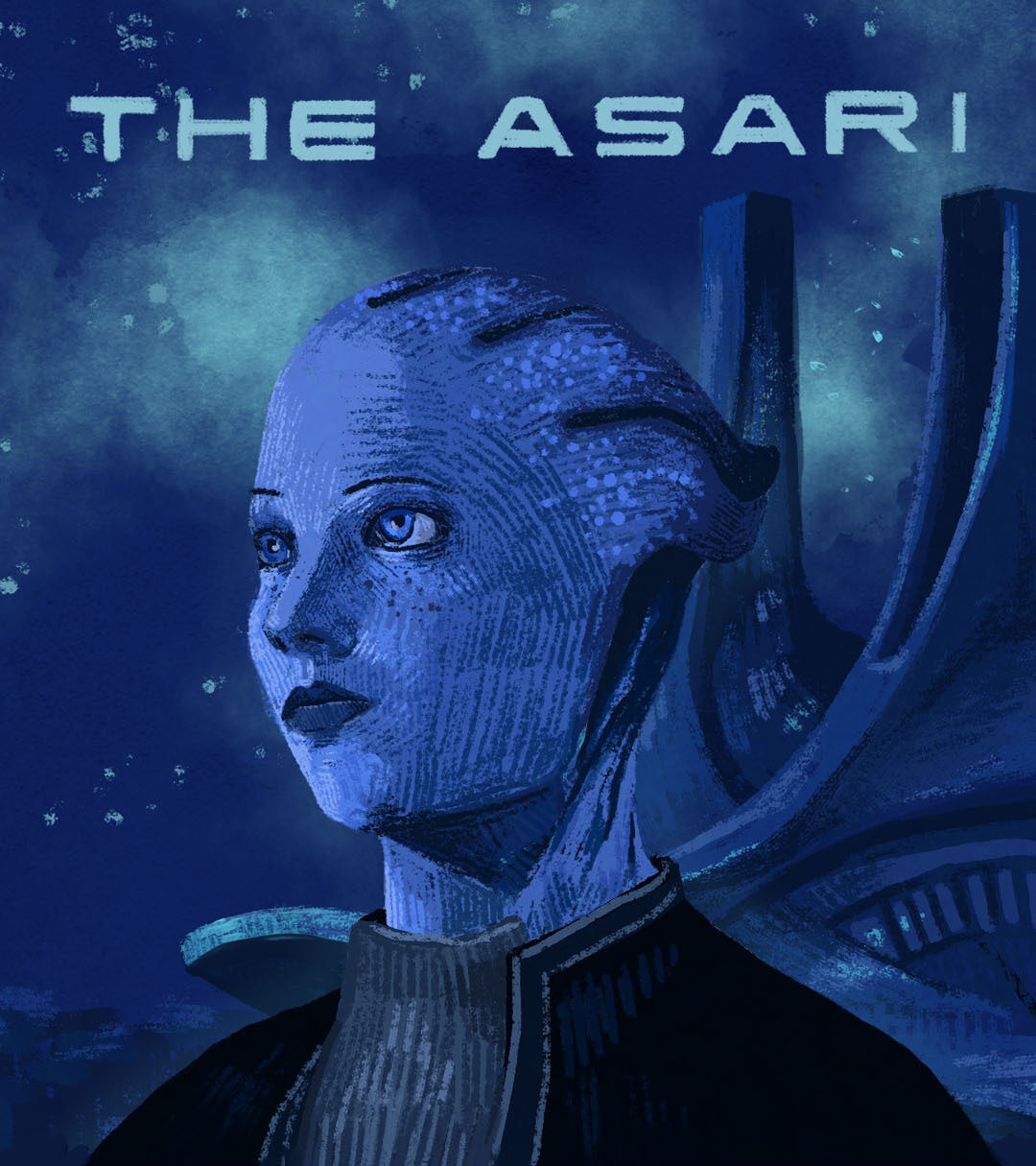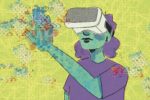The “Mass Effect” trilogy stands out as one of the most influential video game franchises of the 2000’s, and for good reason. Bioware and EA gave their audience the feeling of a cinematic space opera with the player at the center of the action, shaping the story in the role of Commander Shepard. The game focused on player choice and well-rounded characters just as much as sci-fi fantasy spectacle, and the end result was a franchise that captured people’s hearts right up until the finale.
And while that finale has been universally panned and hated since “Mass Effect 3” ended the series in 2012, fans are still eager for more of the franchise. Recently, another “Mass Effect” game was officially confirmed by Bioware, giving fans hope that their beloved series will regain its place as one of the most lauded video game RPGs on the market.
When the original “Mass Effect” came out in 2007, however, the conversation around the game focused much less on player choice and satisfying narrative. Instead, the game became a hotspot for discourse around representation of sexual intimacy and gender queerness.
There had been countless queer-coded characters in games before: games like “The Sims” allowed players to create romantic relationships between characters of any sex as early as 2000, while the “Bioshock” series featured side characters which were hinted to be and later stated to be gay or bisexual by the game’s creators.
“Mass Effect,” meanwhile, featured intense and detailed relationships between queer main characters that had an impact on the story and could even lead to on-screen physical intimacy between them. This wouldn’t necessarily be uncommon in games today, but the content certainly shocked audiences in 2007.
The vast majority of openly queer characters in the first “Mass Effect” were aliens called the Asari, a species closely resembling humans, minus their tentacle hair and blue skin. The Asari all have feminine builds and are referred to with she/her pronouns, and the species is described as “mono-gendered” in the in-game encyclopedia. The Asari made up a large number of the side and main characters in the game, including a member of the player’s crew: Liara T’Soni, an archaeologist who joins up with Commander Shepard to help save the galaxy.
In character creation, a player can choose to be a male or female version of Shepard, leading to different crew members being available for romantic relationships. Two human members of the crew, Kaidan and Ashley, will only be options if the player is of the opposite sex. However, Liara will express romantic interest in Shepard either way, and while her sexual identity is never stated, many players view her as bisexual. Across the player’s relationship with Liara, they grow closer and express the dynamic ranges of their characters, and they share an intimate scene before the final battle with the game’s antagonist.
One of the more aggressive initial reactions to this part of the game came from a 2007 Fox News segment, which claimed “Mass Effect” features “full digital nudity and sex” and was “being marketed to kids and teenagers.” These claims, despite the fact the first “Mass Effect” features no explicit or frontal nudity and was rated Mature (for audiences 17 and up), caused a good deal of backlash towards the developers.
And while much of the controversy around “Mass Effect” focused on the presence of sex in the game in general, it’s interesting that this game would receive so much more backlash than contemporary titles that also featured some sexual content. In hindsight, the connection between “Mass Effect’s” queer content and the explosive reaction to it is hard to miss.
What’s also obvious in hindsight is the problematic nature of the representation “Mass Effect” includes through the Asari. While the conversation in 2007 didn’t go much further than a debate over whether queer characters should be included in stories at all, today the conversation can be a bit more nuanced. And while this franchise has been key in representing sexual and gender queerness, the Asari in the first game are a pretty blatant example of bisexual fetishization.
Because while Liara is a fully-formed character whose romance with Shepard is only one part of her story, many other Asari in the game are reduced to being promiscuous or objects of sexual desire. In Chora’s Den, a club, the player can visit early in the game, a mix of human women and Asari dance in revealing outfits for the entertainment of male patrons (on a side note, the Asari are almost always portrayed in somewhat revealing outfits, but this is probably more closely linked to pandering to male audiences and sexism in gaming at the time).
Another Asari, the Oracle, offers a quest for the player to resolve a dispute between herself and an old partner, who was upset at her romantic engagements with others. After the quest, Commander Shepard can ask the Oracle for an “additional reward” to what was offered, which results in them offering sex to the player.
Generally, while the series gets better at representation over time, the Asari are hypersexualized and treated as things to be desired. The fact many of them are implied to be and portrayed as queer women makes this trend even more troubling than it already would be.
Because while “Mass Effect” includes queer characters, this aspect of the game also reinforces the stigma around bisexual people being promiscuous or unfaithful. On top of that, the decision to make most of the queer characters in the first game (with the possible exception of the player character) aliens also serves to “other” queer people in a way. Given the hostile climate of the 2000s, Bioware probably did this in an attempt to provide representation without being completely overt about it. But the consequences of these decisions still contributed to public stigma towards queer groups at the time.
It wouldn’t be until “Mass Effect 3” in 2012 that gay human characters would exist in the games (or gay male characters, for that matter). Some characters in “Mass Effect 2” were planned to be queer, but backlash towards the first game led to a scrapping of those ideas and resulted in a lack of human queer characters for quite some time.
Ultimately, “Mass Effect” is a series that does a ton of work to include characters of various sexual and gender identities. Characters like Liara and Jack eventually became iconic as deep and relatable queer figures in the gaming world. But it’s important to remember their path to representation was hard-fought, and not without substantial mistakes. It will be interesting to see how the next game in the franchise moves forward along that path, more than ten years after the last game in the original trilogy.

















Great article! You have captured the strengths of the ‘Mass Effect’ series and how fans feel about the ending of ‘Mass Effect 3’. It’s great to see the franchise return and hopefully Bioware will deliver memorable experiences like in the past. Thanks for sharing!
The series offers a sci-fi universe with a deep storyline, where players take on the role of Commander Shepard as he sets out to stop a galaxy-ending threat. A unique feature is that the player’s choices directly influence the progression and outcome of the story, which was rare at the time. Geometry Dash
It’s amazing how Mass Effect managed to blend such a compelling narrative with genuine player agency. You really felt like Shepard, making tough calls that had real consequences. Thinking back, the sense of control and the impactful choices are what set it apart. It’s funny, sometimes I wish more games let you express yourself like that, maybe even in a driving game like Drift Hunters – imagine drifting through space stations with your choices impacting the story! A game like Mass Effect is very memorable.